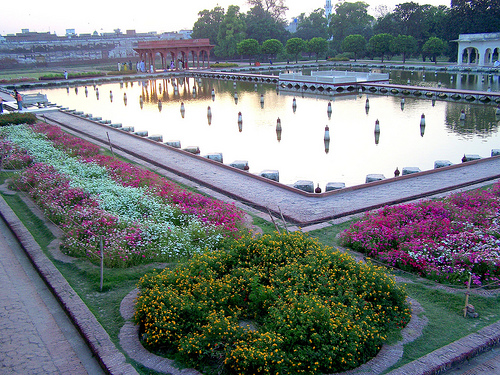
|
|
|
|
BY: SUN STAFF

Aurangzeb's Nephew, Sulaiman Shikoh Nov 23, 2010 — CANADA (SUN) — A serial presentation of the Mughal effect on Vaisnava society. Over the course of this long series, we have heard succession stories for all the Mughal emperors, beginning with Humayun's takeover of his father Babur's court, up to the most recent, with Aurangzeb placing his father Shah Jahan under house arrest until he died. The family history of the Mughals from Babur to Aurangzeb is a lineage filled with deceit, sons laying waste to their fathers in order to steal their power and wealth. Unlike his predecessors, Aurangzeb managed to succumb to death in 1707 A.D. not at the hand of his own progeny, but simply due to old age and ill health. In his book, New History of India, author Stanley Wolpert writes: "…the conquest of the Deccan, to which [Aurangzeb] devoted the last 26 years of his life, was in many ways a Pyrrhic victory, costing an estimated hundred thousand lives a year during its last decade of futile chess game warfare...The expense in gold and rupees can hardly be accurately estimated. [Aurangzeb]'s moving capital alone -- a city of tents 30 miles in circumference, some 250 bazaars, with a 1/2 million camp followers, 50,000 camels and 30,000 elephants, all of whom had to be fed, stripped peninsular India of any and all of its surplus grain and wealth... Not only famine but bubonic plague arose...Even [Aurangzeb] had ceased to understand the purpose of it all by the time he… was nearing 90... "I came alone and I go as a stranger. I do not know who I am, nor what I have been doing," the dying old man confessed to his son in February 1707. "I have sinned terribly, and I do not know what punishment awaits me." [1] Having alienated many of his children and wives, driving some into exile and imprisoning others, Aurangzeb died in Ahmednagar in February 1707 at the age of 88. He was succeeded by his son Bahadur Shah I, under whose brief five-year rule, the Mughal Empire's dying ember burnt out. Some historians claim that Bahadur Shah's failed court was due to the son's poor leadership qualities and lack of military acumen, which on top of the excesses Aurangzeb had burdened the empire down with, had bled the court of much of its wealth. Others say that Bahadur Shah achieved much during those brief five years, particularly given that he was himself an old man of 63 by the time he came to power. He managed to negotiate settlements with the Marathas, calm the angry Rajputs, and establish more friendly relations with the Sikhs in the Punjab. While the damage that had been wrought by the Mughals in India over the nearly 190 years from the time of Babur's arrival until the close of Bahadur Shah's reign could not be undone, there was at least a slow unwinding of the vicious mood that had reached its peak during Aurangzeb's reign. By the time of his death, many of Aurangzeb's relatives, like his nephew Sulaiman Shikoh, son of his eldest brother, Prince Dara, had become more interested in pursuing Indian arts and translating Vedic classics like the Upanishads into Persian, than they were interested in destroying temples and trying to assert power over the local Hindus. A liberal Sufi – far from the mood of the aggressive fundamentalist Muslim that his father Aurangzeb had been – Bahadur Shah spent much of his time engaged in gardening and intellectual pursuits, and he died in Lahore while refurbishing the famed Shalimar Gardens.

Shalimar Gardens, Punjab FOOTNOTES: [1] Wolpert, Stanley (2003). New History of India (7th ed.). Oxford University Press. ISBN 0195166779.
| |